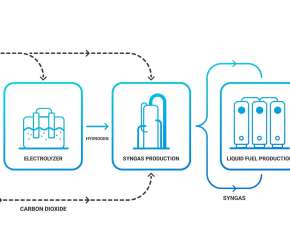SK invests in electrofuels company Infinium
Green Car Congress
OCTOBER 12, 2022
The investment will support acceleration of Infinium’s commercial developments globally. Infinium Electrofuels technology converts carbon dioxide waste and renewable power through its proprietary process to create hydrogen-based alternatives to traditional fossil-based fuels. Earlier post.)












Let's personalize your content